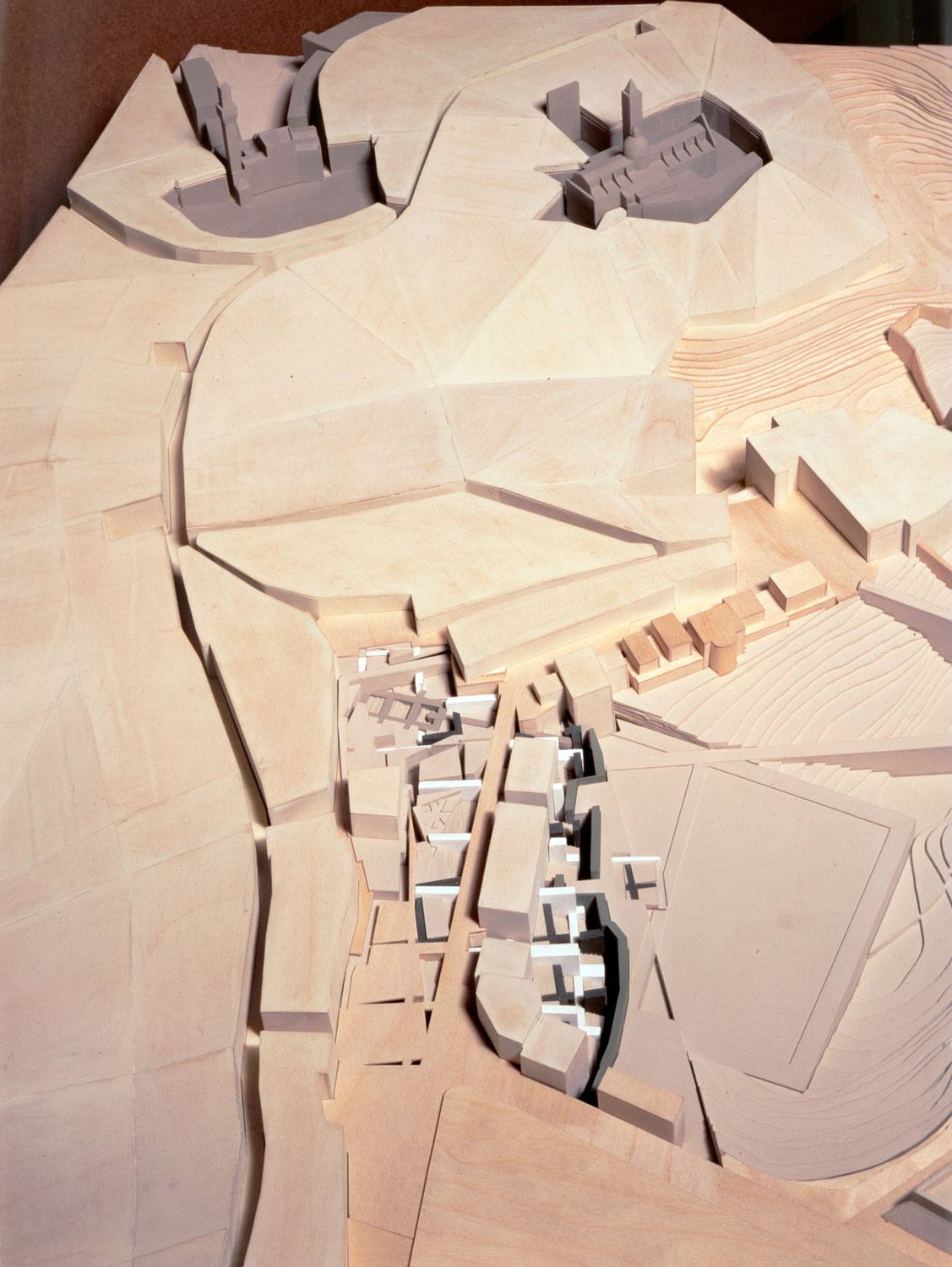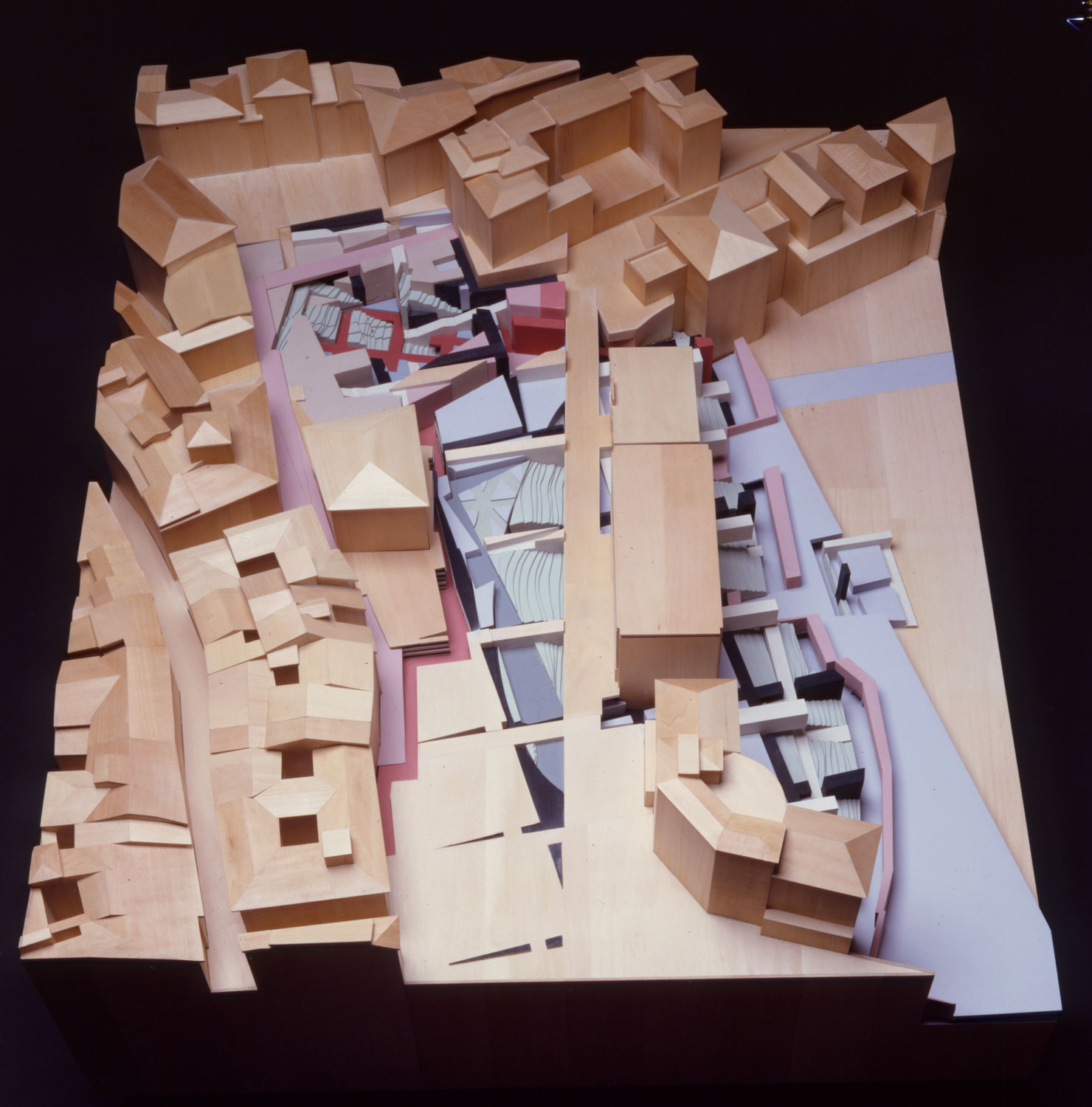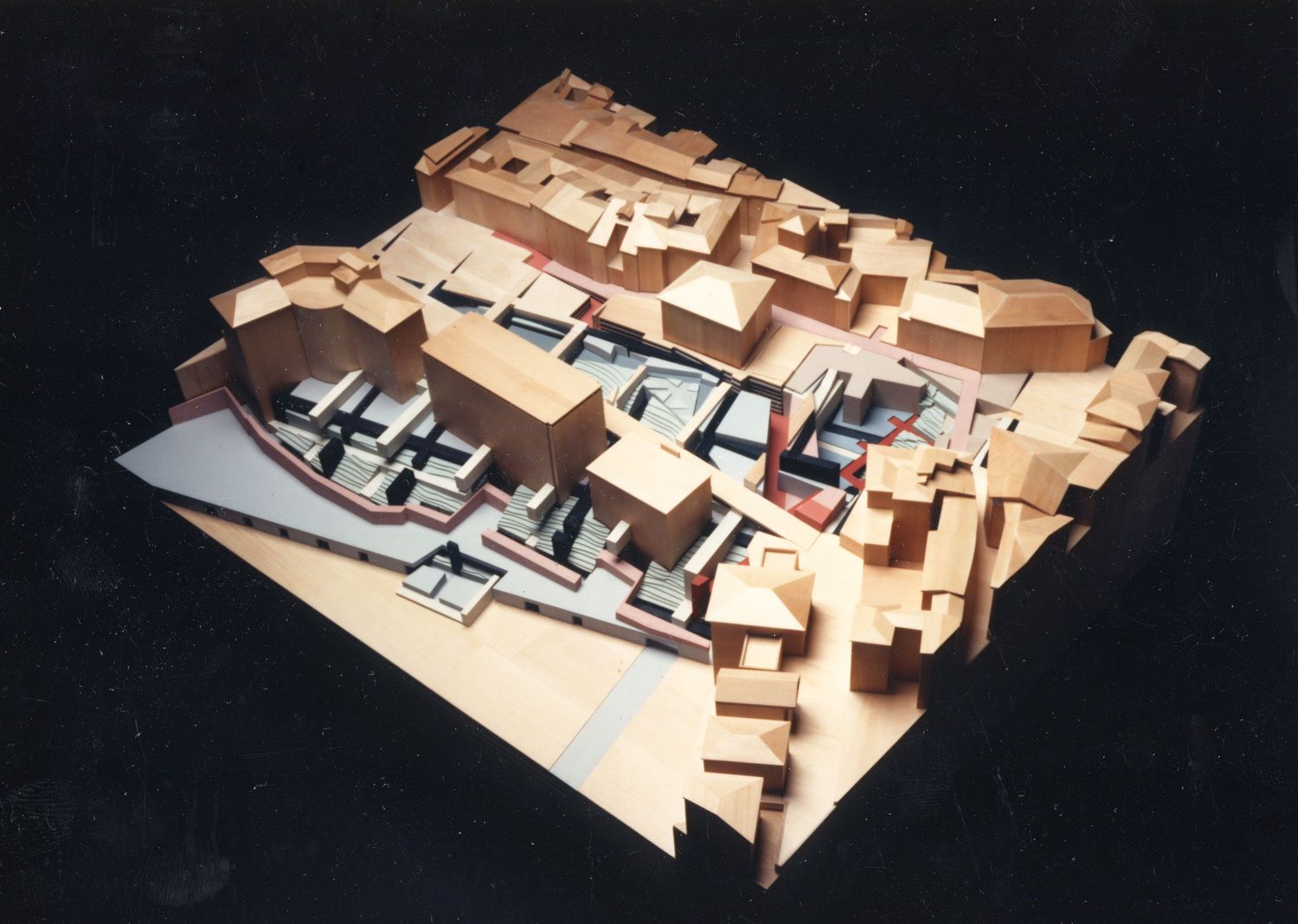
MONTE PASCHI BANK COMPETITION
Location: Siena, Italy
Year: 1988
This
competition required the design of an office building, parking garage, and bus
terminal, while unifying two adjacent piazzas on an elevated site in the center
of the historic hill town. We examined the site for traces of political and
geographical histories, looking for similarities in form that might lead to a
different understanding and interpretation of the town and its past. Siena,
like every town, is made up of a series of latent or repressed figures. These
less obvious figures could reveal a different type of information about the
city, less obvious than the fact that it was a fortress town, like many others
in Italy.
A second idea was that figures that exist as traces of an archeology of the past and future could be found. Every site is a record of time, and as such its presence is only a moment between its past and its future. The Cathedral of Siena stands as a record of such a condition of presence and absence, a record of a past that was projected but never built. Together, the latent figures and the historical traces suggest another strategy for an urbanism, not of discrete classical buildings and grids but one that is less unitary, perhaps less easy to read, but which responds to an existing context in a profound and natural way. Such figures are not merely singular objects or natural presences, but lie between the idea of a realized building and a trace of its unrealized past.
Conceptually, the attempt was both to blur and to deny the edge or the frame of the existing context as a single strong figure and to suggest that the edge can also be a weak figure. Within this concept of the edge as a multivalent weak figure, it is possible to pull it apart, to open it up, as it were, to reveal the latent characteristics of the area.
A second idea was that figures that exist as traces of an archeology of the past and future could be found. Every site is a record of time, and as such its presence is only a moment between its past and its future. The Cathedral of Siena stands as a record of such a condition of presence and absence, a record of a past that was projected but never built. Together, the latent figures and the historical traces suggest another strategy for an urbanism, not of discrete classical buildings and grids but one that is less unitary, perhaps less easy to read, but which responds to an existing context in a profound and natural way. Such figures are not merely singular objects or natural presences, but lie between the idea of a realized building and a trace of its unrealized past.
Conceptually, the attempt was both to blur and to deny the edge or the frame of the existing context as a single strong figure and to suggest that the edge can also be a weak figure. Within this concept of the edge as a multivalent weak figure, it is possible to pull it apart, to open it up, as it were, to reveal the latent characteristics of the area.
Model photos




